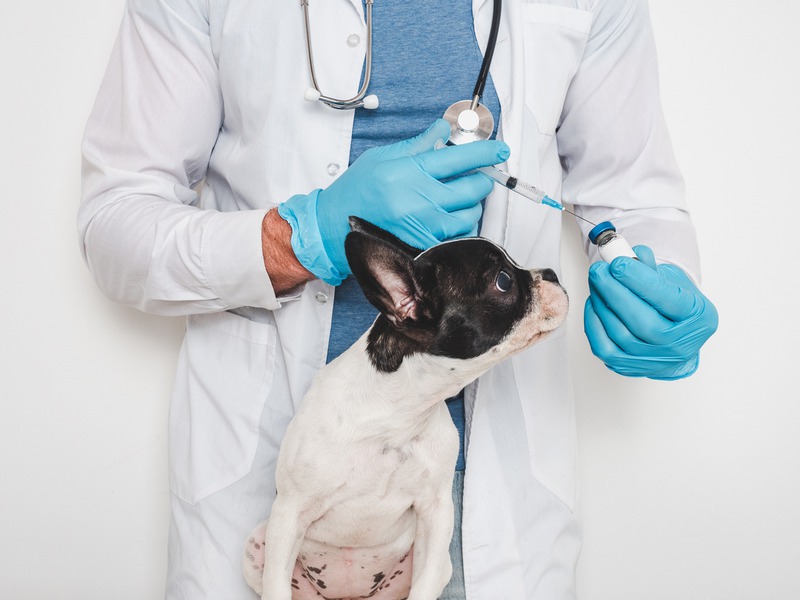As a new pet parent, understanding the need for vaccinations and deworming in puppies and kittens is paramount. This isn’t just about adhering to a vet’s recommended schedule; it’s about laying the groundwork for a long, healthy life for your furry companion.
Within their first few weeks to months, young animals are exceptionally vulnerable to infections and diseases. Vaccines are a form of preventive medicine that protects them from serious, sometimes fatal, diseases by boosting their young immune systems.
Building Immunity with Vaccines
Vaccinations stimulate a puppy or kitten’s immune system to create antibodies against diseases. This proactive approach means that if they ever come into contact with the actual disease, their bodies are ready to fight it off. Vaccines are crucial during the early stages of life, as maternal antibodies start to diminish and the young animal’s immune system is not yet fully developed.
Vaccination Schedule
Starting around six to eight weeks of age, puppies and kittens should begin their series of vaccinations, continuing every three to four weeks until they’re around 16 weeks old. The exact timing and type of vaccines will depend on various factors, including risk of exposure and geographic location.
The Importance of Deworming
Beyond vaccinations, deworming is another cornerstone of young pet care. Parasites like roundworms, hookworms, and tapeworms can be present in animals from birth or shortly after that. These unwelcome guests don’t just make your pet sick; they can also be transmitted to humans, posing a public health risk.
Tackling Parasites Early On
Deworming treatments help eradicate these parasites, ensuring your pet isn’t drained of vital nutrients or suffering from other health issues like anemia or gastrointestinal problems. Generally, deworming starts as early as two weeks old and continues at intervals based on the vet’s recommendation.
Deworming Schedule
The exact schedule for deworming is usually every two weeks until the kitten or puppy reaches two months of age and then monthly until six months old. This schedule might vary based on the pet’s environment and level of parasite exposure.
Incorporating Pet Wellness Exams
Alongside vaccinations and deworming, routine wellness exams play a crucial role in your pet’s health. Typically, a puppy checkup or kitten visit involves a comprehensive physical examination. This visit allows veterinarians to detect and address any health concerns early on, ensuring your little one stays on the right track for growth and development.
What to Expect During a Pet Wellness Exam
During a wellness exam, your vet will conduct a full nose-to-tail assessment. They’ll check for congenital issues, discuss nutrition and feeding schedules, and provide guidance on caring for your young pet. It’s also an excellent opportunity to ask questions about training, behavior, and spaying or neutering.
The Role of Veterinary Care for Young Pets
From the moment they’re born, puppies and kittens require specialized medical attention. Regular vet care for puppies & kittens ensures that they not only survive but thrive. It encompasses a range of services from vaccinations and deworming to nutritional advice and preventative care, forming the bedrock of a healthy life.
Creating a Lifelong Health Plan
Your vet will tailor a healthcare plan that evolves as your pet grows. The plan includes scheduled vaccinations, parasite control, and routine wellness checks. By faithfully following this plan, you can safeguard your pet against common health problems and lay the foundation for a long and happy life.
Why Prevention is Better Than Cure
When it comes to your pet’s health, proactive measures like pet vaccinations & parasite prevention always trump reactive treatments. Preventative care spares your pet from unnecessary pain and suffering while saving you from expensive treatments for preventable diseases.
Long-Term Health Benefits
A strong start with vaccinations and deworming paves the way for a robust immune system. As your pet ages, their early health care contributes to their resilience against diseases and their overall vitality.
The Role of Pet Parents in Prevention
As a pet parent, you’re the first line of defense in your pet’s health. By ensuring that your pet receives proper vaccinations and deworming, you’re actively participating in the protection and welfare of your beloved companion.
Embracing Your Responsibility
-
Educate yourself on the importance of pet vaccines and deworming.
-
Adhere to a vet-recommended schedule for your pet’s health care.
-
Keep records of all vaccinations and deworming treatments.
-
Monitor your pet’s health and behavior for any signs of illness.
Addressing Concerns About Vaccines and Deworming
Despite the irrefutable benefits, some pet parents may have concerns about vaccines or deworming treatments. It’s important to discuss these concerns with your vet, who can provide evidence-based information to put your mind at ease.
The Safety and Efficacy of Pet Care
Vaccines and dewormers undergo rigorous testing to ensure they’re safe and effective. Side effects are generally rare and minor, and the benefits far outweigh any potential risks.
Myths and Facts
Misinformation about pet health can spread quickly, but trusted vet professionals offer clarity. Your vet can dispel myths and offer a fact-based perspective on the necessity of vaccines and deworming for your pet.
Final Thoughts
Vaccinations and deworming are critical elements of early pet vaccinations and parasite prevention. These measures, in combination with regular vet visits and wellness exams, establish a healthy foundation for your pet. By committing to a robust healthcare routine from the start, you set the stage for a lifetime of happiness together. As a responsible pet parent, your dedication to preventative care ensures your pet enjoys a full, vibrant life.

